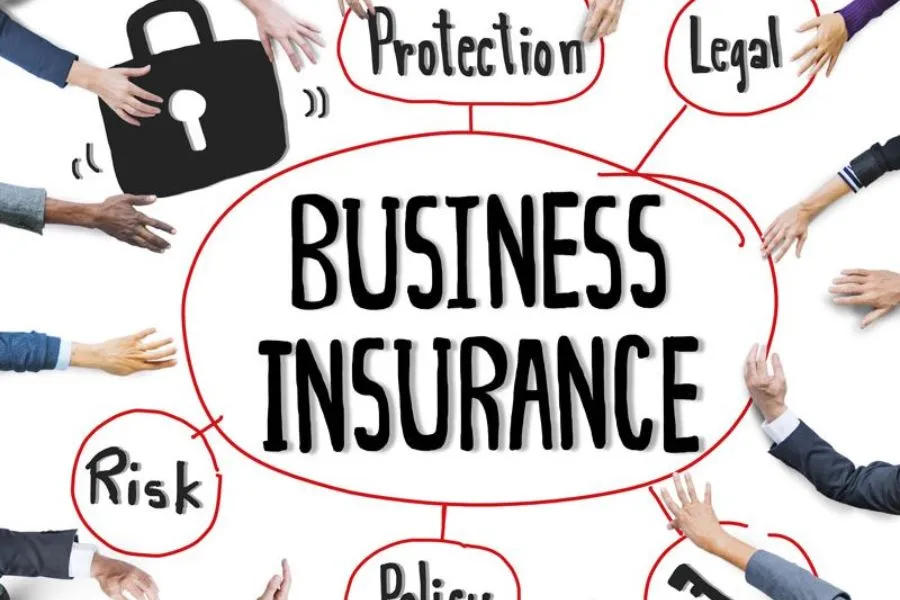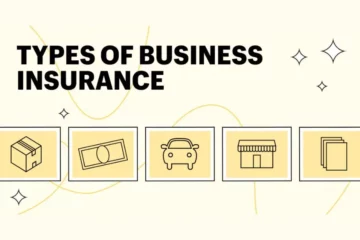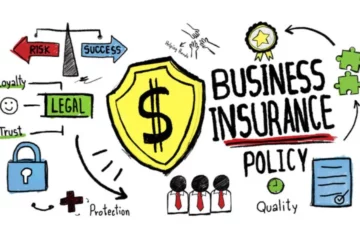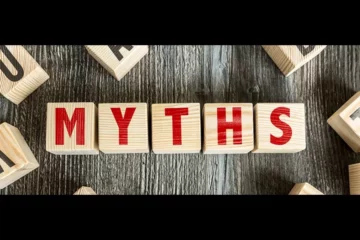Navigating the World of Business Insurance: Tips for Choosing the Right Coverage

Right Coverage
Running a business comes with a lot of responsibility and one of the essential elements to consider is insurance coverage. The right insurance policy not only provides financial protection but also peace of mind. However, navigating the world of business insurance can be overwhelming, especially if you are not familiar with the terminologies and the types of coverage available. With so many options and varying costs, choosing the right coverage can be a daunting task. But don’t worry, in this article, we will explore some tips to help you make informed decisions when selecting the right insurance coverage for your business. Whether you’re a small business owner or a seasoned entrepreneur, understanding the basics of business insurance is crucial to protect you, your employees, and your business from unforeseen events. So, let’s dive in and gain some insights on how to navigate the world of business insurance.
Types of business insurance coverage
The first step to navigating the world of business insurance is understanding the different types of coverage available. Business insurance can be divided into two main categories: property and liability insurance. Property insurance covers damages or losses to your business property, such as equipment, buildings, and inventory. Liability insurance covers any legal or financial obligations arising from injuries or damages caused by your business operations. Here are some of the most common types of business insurance:
General Liability Insurance
General liability insurance is one of the most basic forms of coverage and is designed to protect businesses from legal and financial liabilities that may arise from accidents, injuries, or damages caused by their products or services. This type of insurance covers a broad range of risks, such as bodily injury, property damage, and personal injury.
Property Insurance
Property insurance covers damages or losses to your business property due to natural disasters, theft, or other covered events. This type of insurance can cover buildings, equipment, inventory, and other physical assets.
Workers’ Compensation Insurance
Workers’ compensation insurance is required by law in most states and provides benefits to employees who are injured or become ill as a result of their job. This type of insurance covers medical expenses, lost wages, and other related costs.
Professional Liability Insurance
Professional liability insurance, also known as errors and omissions insurance, is designed to protect businesses from legal and financial liabilities that may arise from errors, omissions, or negligence in their professional services. This type of insurance is typically purchased by professionals such as doctors, lawyers, and accountants.
Cyber Liability Insurance
Cyber liability insurance is becoming increasingly important as businesses rely more on technology and store sensitive data online. This type of insurance covers losses and damages resulting from cyber-attacks, data breaches, and other cyber threats.
Understanding your business risks
Once you understand the types of insurance coverage available, the next step is to evaluate the risks specific to your business. Every business faces unique risks that can impact their operations, employees, and customers. Identifying and understanding these risks is crucial to selecting the right insurance coverage. Here are some of the most common risks that businesses face:
Property Damage
Property damage can occur due to natural disasters, theft, or other events. Businesses that own physical assets such as buildings, equipment, and inventory are at risk.
Liability
Liability risks can arise from accidents, injuries, or damages caused by your business operations. Businesses that provide products or services to customers are at risk.
Cybersecurity
Cybersecurity risks can arise from cyber-attacks, data breaches, and other cyber threats. Businesses that store sensitive data online or rely on technology are at risk.
Reputation
Reputation risks can arise from negative publicity, customer complaints, or other events that damage your business’s image. Businesses that rely on their reputation to attract customers and clients are at risk.
Employee Injuries
Employee injuries can occur due to accidents or illnesses that arise from their job duties. Businesses that employ workers are at risk.
Assessing your insurance needs
Once you have identified the risks specific to your business, the next step is to assess your insurance needs. This involves determining the type and amount of insurance coverage required to protect your business against these risks. Here are some factors to consider when assessing your insurance needs:
Business Size
The size of your business will determine the type and amount of insurance coverage required. Small businesses may only need basic coverage, while larger businesses may require more comprehensive coverage.
Industry
The type of industry you operate in will impact your insurance needs. For example, a construction company will require different coverage than a retail store.
Business Assets
The value and type of business assets you own will impact your insurance needs. Businesses with expensive equipment or inventory will require more coverage.
Business Operations
The specific operations of your business will impact your insurance needs. For example, a business that provides professional services will require professional liability insurance.
Tips for choosing the right insurance coverage
Choosing the right insurance coverage can be a daunting task. Here are some tips to help you select the right coverage for your business:
Work with an Insurance Agent
An insurance agent can help you navigate the world of business insurance and provide advice on the types of coverage required for your business.
Compare Coverage Options
Compare the coverage options offered by different insurance providers and choose one that offers the best coverage for your business.
Read the Fine Print
Read the policy documents carefully and understand the terms and conditions of the coverage before purchasing.
Consider the Cost
The cost of insurance coverage varies depending on the type and amount of coverage required. Consider the cost when selecting the right coverage for your business.
Review Your Coverage Annually
Review your insurance coverage annually and make changes as necessary to ensure your business is adequately protected.
How to find the best insurance provider
Finding the best insurance provider for your business can be challenging. Here are some tips to help you find the right provider:
Research
Research different insurance providers and read reviews from other businesses to find a provider that offers reliable and quality coverage.
Check Credentials
Check the credentials and reputation of the insurance provider before purchasing coverage.
Ask for Referrals
Ask other business owners for referrals on insurance providers they have worked with and trust.
Common mistakes to avoid when buying business insurance
Avoid these common mistakes when buying business insurance:
Underestimating Risks
Underestimating the risks specific to your business can result in inadequate coverage and financial losses.
Choosing the Cheapest Option
Choosing the cheapest insurance coverage may result in insufficient coverage and costly gaps.
Failing to Review Coverage Annually
Failing to review your insurance coverage annually can result in gaps in coverage and inadequate protection.
Not Understanding the Policy
Not understanding the policy terms and conditions can result in unexpected costs and insufficient coverage.
Insurance coverage for small businesses
Small businesses face unique risks and insurance needs. Here are some of the most common types of insurance coverage for small businesses:
General Liability Insurance
General liability insurance provides coverage for legal and financial liabilities arising from accidents, injuries, or damages caused by your business operations.
Property Insurance
Property insurance provides coverage for damages or losses to your business property.
Business Owner’s Policy
A business owner’s policy combines general liability and property insurance into one policy, providing comprehensive coverage for small businesses.
Workers’ Compensation Insurance
Workers’ compensation insurance provides benefits to employees who are injured or become ill as a result of their job.
Insurance coverage for larger businesses
Larger businesses have more complex insurance needs. Here are some of the most common types of insurance coverage for larger businesses:
Professional Liability Insurance
Professional liability insurance provides coverage for legal and financial liabilities that may arise from errors, omissions, or negligence in professional services.
Cyber Liability Insurance
Cyber liability insurance provides coverage for losses and damages resulting from cyber-attacks, data breaches, and other cyber threats.
Directors and Officers Liability Insurance
Directors and officers liability insurance provides coverage for legal and financial liabilities arising from decisions made by the company’s directors and officers.
Umbrella Insurance
Umbrella insurance provides additional liability coverage beyond the limits of your primary insurance policies.
Conclusion
Navigating the world of business insurance can be overwhelming, but understanding the types of coverage available, evaluating your business risks, and assessing your insurance needs can help you make informed decisions when selecting the right coverage for your business. By following the tips outlined in this article, you can find the best insurance provider, avoid common mistakes, and protect your business from unforeseen events. Remember to review your coverage annually and make changes as necessary to ensure your business is adequately protected.








